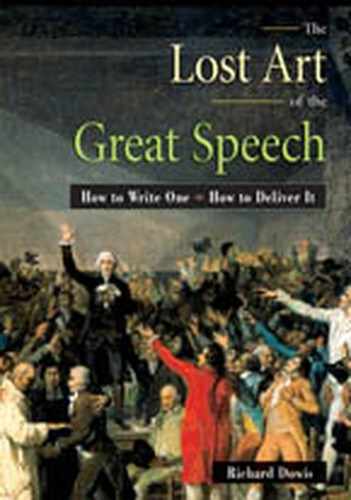Humor with a purpose
Humor can be used as an icebreaker near the beginning of a speech to put both the speaker and the audience in a more relaxed frame of mind. It can be effective as a closer to ensure that the audience leaves on a happy note. It can be used throughout a speech to help the speaker make points and to make the points more memorable.
Using humor can help a speaker make a point on a sensitive subject. Texas Governor Ann Richards, keynoting the National Democratic Convention in 1988, used humor to get in a plug for women's rights:
But if you give us a chance, we can perform. After all, Ginger Rogers did everything Fred Astaire did. She just did it backwards and in high heels.
That was the same speech in which Mrs. Richards said of President Bush, ''Poor George. He can't help it. He was born with a silver foot in his mouth.'' The remark was an oblique reference to the facts that Mr. Bush was born into a wealthy home and was sometimes distressingly bumbling in his discourse. The humor enabled her to say something that might have sounded petty if expressed in a humorless way.
You don't have to be a comedy writer to work humor into a speech, but you do need a good sense of what's funny. I feel that I have a good sense of humor, but I've never made a strong effort to write jokes or funny lines to include in speeches. Now and then a good line will pop into my head. When that happens, I use it. But I don't consciously try to make it happen. If you're inclined to try your hand at writing humor, there are books—and even computer software—available to help you get started. Comedy-writing courses are taught in some colleges.
I get most of my humor from other sources. Although you don't want to fall into the habit of using tired, old jokes, a bit of recycling can be useful. After all, experts tell us that all humor is created from a handful of formulas.
There are many sources of humor, both jokes and one-liners, that you can adapt for your particular purposes. Many speech writers subscribe to one or more newsletters devoted to humor. The jokes and lines found in these publications are likely to be fresher and based more on contemporary themes than those that come from anthologies. Even if a few members of the audience have heard the joke you tell, it almost certainly will be new to most of them. But what really makes a joke effective is not whether it's new, but how it's used in the context of the speech. A good line that crops up where humor is least expected can make a point stick in the minds of listeners even though the line is a bit gray-bearded. Many a hoary old line has been given a contemporary twist by a good humorist.
Humor in a speech does not have to be hilarious. A speaker, after all, is not a stand-up comic. Smiles and chuckles are better than belly laughs.
